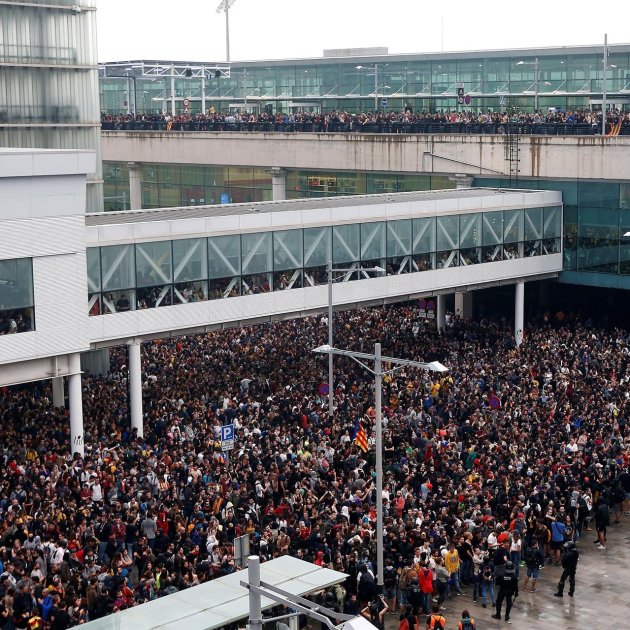The Spanish Supreme Court prosecutor, Álvaro Redondo, made a first report in which he considered that there was evidence of a crime of terrorism in the Democratic Tsunami case, as he had understood - after reading the exposition of the investigation given by judge Manuel García-Castellón - that the air traffic controllers at Barcelona-El Prat airport had been effectively trapped by the large public mobilization called by the Tsunami platform, on October 14th, 2019, in protest at the Supreme Court's sentencing of the Catalan pro-independence leaders. Redondo, after obtaining further information, saw that the air traffic controllers did not lose their freedom of movement, despite the difficulties due to the protest, and that is why, in the end, he ruled out the crime of terrorism, sources close to the prosecution service have told ElNacional.cat.
In fact, Spain's chief state prosecutor, Álvaro García Ortiz, while visiting Barcelona this Wednesday, described the leaking of this first draft of the document to the media as a "betrayal of comradeship". He also denied that he forced Redondo to change his mind. According to sources close to the case, Redondo sent the draft on the Puigdemont case to one of the two presidents of the Supreme Court prosecutors' board, Fidel Cadena, and he is thought to have passed it on to other colleagues, such as those who conducted the prosecution at the leaders trial, such as Javier Zaragoza and Consuelo Madrigal - and from there, someone also passed it to the press.
The judge's thesis
The National Audience judge investigating the case asserts that the terrorism accusations are valid for two reasons: the supposed air blockade of the El Prat airport and the death of a French citizen from a heart attack, even though medical services and another judge have ruled out that this death was related to the public protest. Judge García-Castellón re-activated the investigation into the Tsunami case, last November 6th - coinciding with the political agreement reached by the pro-independence party Junts and Pedro Sánchez's Socialists on an amnesty for independence process prosecutions. The judge brought Catalan president in exile Puigdemont into the list of the accused, as well including the ERC organizing secretary Marta Rovira, ERC deputy Ruben Wagensberg, and nine other people. The judge even asked NATO about air security on the day of the demonstration.
Prosecutor opposed
The prosecutor of the National Audience, Miguel Ángel Carballo, has produced two reports that are highly very critical of judge García-Castellón's conclusions in the Tsunami investigation, considering that the evidence against those investigated in the Tsunami case could, at most, constitute crimes of serious public disorder. And he also notes that not even the Civil Guard attributed any Tsunami-related action to Carles Puigdemont in its reports. He also reproached the judge for not waiting for the response of the National Audience's criminal chamber on the appeal made by the prosecutor, and instead, elevated the case directly to the Supreme Court.
In this regard, Spain's chief prosecutor told journalists, this Wednesday, that he did not want to comment on the Tsunami case and that a division of opinions between prosecutors is not unusual - he compared it to the dissenting opinions given by judges in some court sentences. However, Álvaro García Ortiz did state that the expert on terrorism is the National Audience prosecutor.
